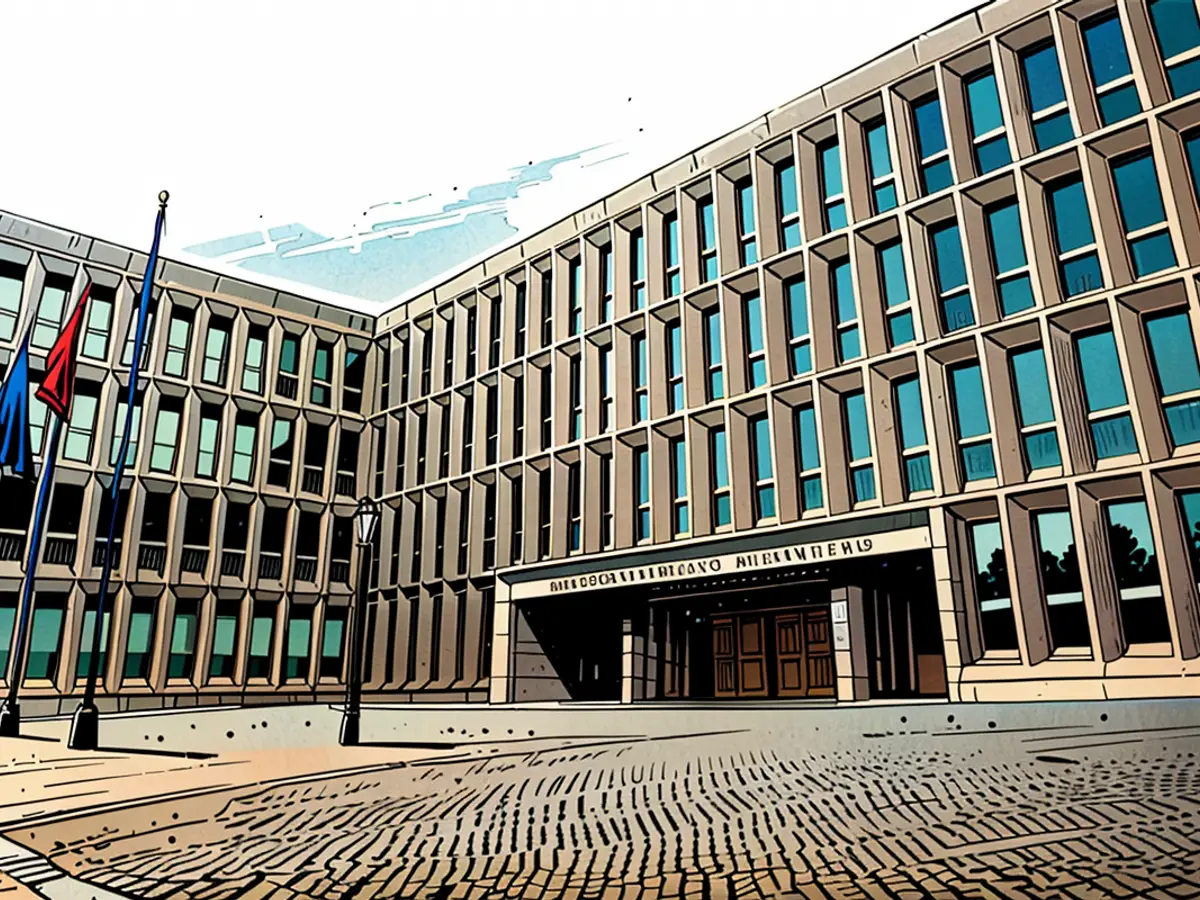- Exhibiting schedule or potential modifications at the migrant convention?
Union's Demands at the Migration Meeting
From the Coalition, substantial requests are being put forth at the Union's immigration meeting - while the federal government issues a warning about high expectations. "I'd rather advocate for patience and not setting high expectations in advance," stated deputy government spokeswoman Christiane Hoffmann in Berlin.
CDU's Position
Leader of the CDU, Friedrich Merz, though not involved in the meeting, echoed demands for a substantial decrease in migration to Germany the previous day. "The genuine issue is the ongoing, unchecked immigration pressure," argued the Union's faction leader. "If there isn't an agreement tomorrow, then further negotiations are unnecessary," Merz said on Monday evening in Osnabrück.
The head of the minister-presidents' conference, Boris Rhein (CDU) from Hesse, had earlier demanded a "shift in immigration policy" likening it to a "turning point." On Monday, he reiterated the Union's demands: "The federal government must maintain border controls, consisently reject applicants at the border, enforce Dublin rules on a European stage, identify more safe countries of origin, and speed up asylum processes in third countries. Deportations to Afghanistan and Syria should be possible, and citizenship should be revoked from criminals and harmful individuals. Deportation and detention facilities should also be expanded."
BSW's Position
Even BSW chairwoman Sahra Wagenknecht advocates for a firm stance on immigration. "Instead of temporary solutions, we need a political end to uncontrolled migration," she told the "World." "Those already in the country but rejected lose their right to support." Additionally, individuals entering from a safe third country have no claim to asylum and no claim to services funded by taxpayers.
The Traffic Light Coalition's Proposal
From the perspective of the federal government, negotiations are based on the "security package" enacted the previous week - a response to the knife attack in Solingen resulting in three fatalities. It includes measures focused on three areas: a harsher stance on repatriating rejected asylum seekers, stronger action against Islamic terrorism, and strengthening the weapons law.
Various proposed measures include barring asylum seekers with outstanding responsibility in another European country from receiving benefits in Germany (Dublin cases), banning switchblades, and easier exclusion from protection in Germany for migrants who have committed a crime. Additionally, a working group will research possibilities to improve the Dublin procedure, which regulates deporting asylum seekers to responsible European states.
Migration Commissioner's Warning
The federal government's migration commissioner, Reem Alabali-Radovan, warned against "excessive emphasis on toughening immigration policy." The "security package" aims to strengthen protection against terrorism, violence, and crime, stated the SPD politician to the editorial network Germany (RND). "It is important that this happens without prejudice and blanket assumptions."
Migration and domestic security fall under the jurisdiction of the states. Although the Federal Office for Migration and Refugees (BAMF) handles asylum applications, immigration offices are state authorities. Even deportations are a state concern, albeit with support from the federal police for implementation.
The government also aims to boost collaboration between the federal and state governments as part of the security package. A joint working group of federal and state governments will investigate opportunities to improve the Dublin procedure, which regulates deporting asylum seekers to other European states responsible for them. This instance pertained to the suspected attacker in Solingen, who should have been deported to Bulgaria.
Confidential Meeting Planned
Participants in the meeting at the Federal Ministry of the Interior include, for the federal government, Interior Minister Nancy Faeser (SPD), Justice Minister Marco Buschmann (FDP), and Foreign Minister Annalena Baerbock (Greens), along with representatives of the traffic light factions. For the Union faction, Fraktion Business Manager Thorsten Frei (CDU) is expected, with Hesse representing the Union side for the states, and Lower Saxony the SPD side.
The government is not planning to release any information after the discussion. A confidential session is planned.
The Union's faction leader, Friedrich Merz, expressed enthusiasm for a significant reduction in immigration to Germany, stating that the ongoing immigration pressure is a genuine concern. At the party, it was suggested that the federal government should maintain border controls, consistently reject applicants, enforce Dublin rules, identify more safe countries of origin, and speed up asylum processes in third countries.








